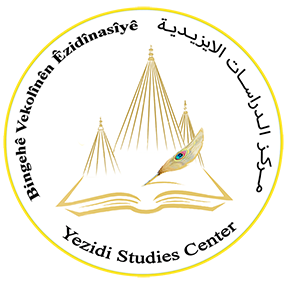New Horizons: First Volume of Yezidi Studies Center Series Now Available
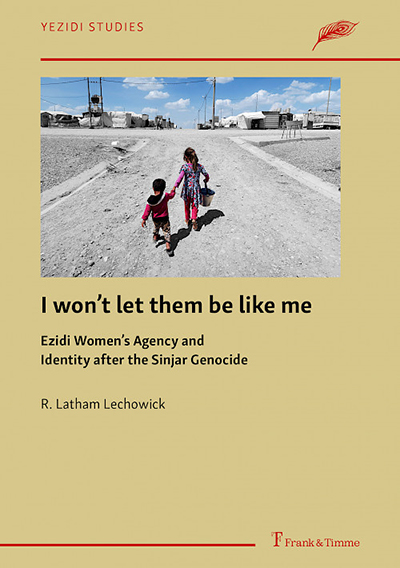
The Yezidi Studies Center in Leipzig University in Germany is thrilled to announce the launch of its first highly anticipated series of publications named “Yezidi Studies”, with the inaugural book titled “I Won’t Let Them Be Like Me: Ezidi Women’s Agency and Identity After the Sinjar Genocide” by esteemed author R. Katham Lechowick. The launch of “Yezidi Studies” represents a pivotal moment in the scholarly discourse surrounding Yezidi culture, providing a dedicated platform for researchers and academics to delve into the multifaceted dimensions of Yezidi history, beliefs, and practices. With an unwavering commitment to inclusivity, the Yezidi Studies Center aims to amplify diverse voices from within the Yezidi community and beyond, fostering greater understanding and appreciation for this ancient and resilient culture. Through rigorous research and interdisciplinary collaboration, the “Yezidi Studies” series endeavors to challenge existing paradigms, illuminate untold stories, and foster meaningful dialogue across cultural boundaries. Each publication within the series promises to offer fresh insights and perspectives, enriching the academic landscape and contributing to a deeper understanding of Yezidi heritage. Furthermore, the Yezidi Studies Center extends an open invitation to scholars actively working in the field of Yezidi studies to submit their book manuscripts for consideration in future volumes of the series. This inclusive approach reflects the Center’s commitment to nurturing collaboration and promoting the dissemination of diverse perspectives within the academic community.
Call for PhD applications in Yezidi Studies

The Yezidi Studies Center YSC in collaboration with the Oriental Institute at Leipzig University invites applications from potential PhD students who like to pursue a research project that relates to the goals and mission of the YSC. Under the supervision of Prof. Dr. Sebastian Maisel, the Ph.D. student will conduct research and fulfill all other academic requirements to complete his/her thesis in the field of Yezidi Studies. Yezidi Studies is an interdisciplinary field with a focus on Yezidi society, culture, and religion. Proposals that include topics to further this agenda are welcome. In order to allow for a larger representation in academia, female Yezidi applicants are especially encouraged to apply. Every year, 1 to 2 applicants will be admitted to Leipzig University’s list of doctoral candidates. This entitles them to the benefits of other international PhD students in Germany. No tuition fees are charged. However, no other financial support is granted with the acceptance into this program. The Yezidi Studies Center will assist the candidates in finding scholarships. Please send your proposal package that includes:– a cover letter about your motivation to apply for this program– the Ph.D. proposal: max. 5 pages that include a working title, precise research thesis, suggested methodology, and bibliographical notes– CV– a copy of your MA certificate to sebastian.maisel@uni-leipzig.de by April 30, 2024. After approval, the selected candidate may start their work on October 1, 2024. Residence in Germany is not required. The thesis may be written in German or English. Prof. Dr. Sebastian Maisel Professor für Arabische Sprach- und ÜbersetzungswissenschaftOrientalisches Institut, Universität Leipzig Yezidi Studies Center Tel: +49 341 9737202Email: sebastian.maisel@uni-leipzig.de Schillerstraße 6 04158 Leipzig
Exploring Yezidi Religious Texts and Sites – Winter Semester 2023-2024 at the University of Leipzig
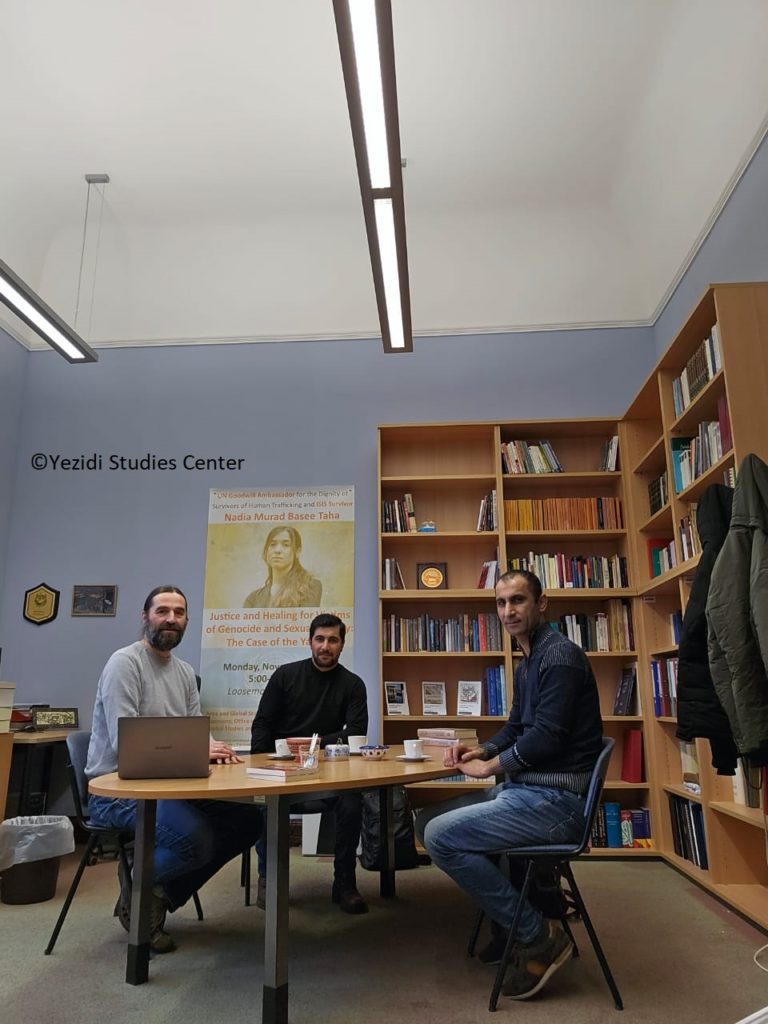
The Yezidi Studies Center at the University of Leipzig triumphantly concluded its second course, “Religious Texts and Sites in Yezidism,” during the Winter Semester of 2023-2024 at the esteemed Oriental Institute. This illuminating course, co-taught by Prof. Sebastian Maisel and Dr. Qader S. Shammo, garnered praise from students who lauded the depth and insight embedded in the curriculum. Throughout the seminars, the educators zeroed in on a specialized facet within the burgeoning field of Yezidi Studies. This discipline, aimed at a comprehensive and interdisciplinary exploration of Yezidi religion, society, and culture, delved into the sacred texts and sites integral to the Yezidi identity. Both in the historical homeland and the diaspora, the sacred holds a profound significance as a representation of Yezidi identity. Employing a sociolinguistic approach, the instructors meticulously investigated the impact, reinterpretation, and documentation of texts and sites considered sacred by various Yazidi communities. The curriculum encompassed the reading, understanding, and analysis of diverse text types, including translations, coupled with an in-depth exploration of the sacred Yazidi landscape through mapping exercises. The Center’s unwavering commitment to delivering a comprehensive and distinguished education on Yezidism shines through, marking a significant milestone in fostering understanding and appreciation for this unique cultural and religious heritage. This course stands as a testament to the Center’s dedication to unraveling the intricacies of Yezidi identity and facilitating a profound comprehension of their rich cultural tapestry. https://www.youtube.com/watch?v=Z0qEfrOZ0Gohttps://www.youtube.com/watch?v=e1ipz4QKlaw
Call for Research Scholarship Applications
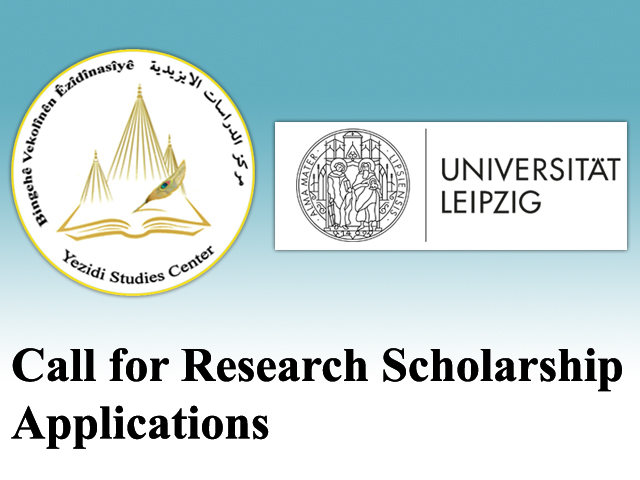
Yezidi Studies Center in Cooperation with three Famous German Universities and University of Duhok Participating in a Big Project about Yezidi Genocide
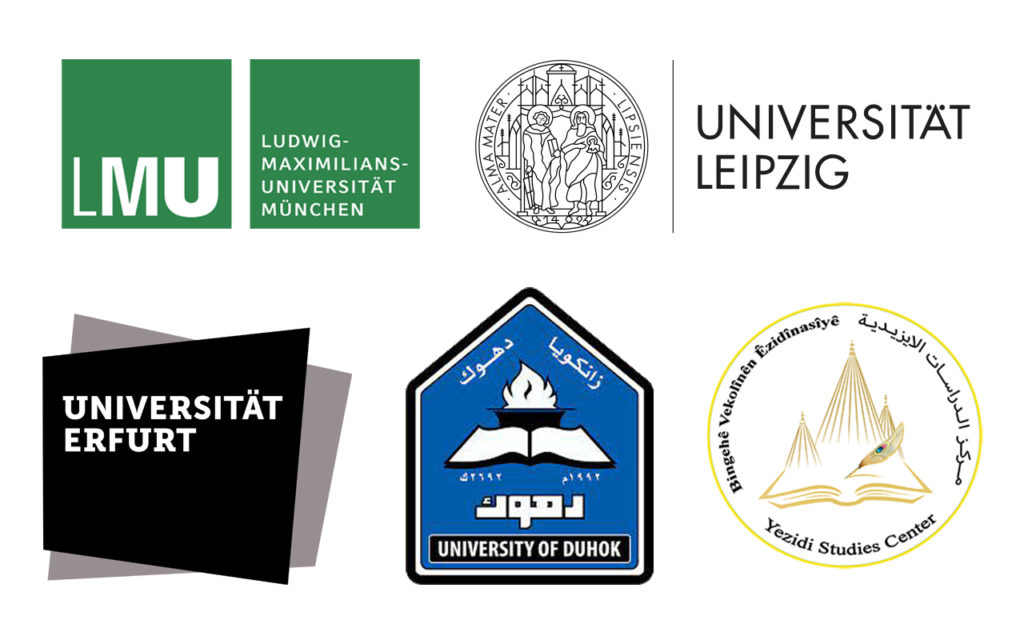
A project on Yezidi Genocide was achieved by Dr. Qader Saleem Shammo at Munich University (LMU) in Germany. The project cooperates with the Yezidi Studies Center, and three German universities: Munich University (LMU), Leipzig University, and Erfurt University, in addition to the University of Duhok. The project will look for the roots of Islamic hostility towards Yezidis and Yezidism by comparing historical and contemporary Islamic attitudes and behaviors. It provides a summary of the perspectives of Arab scholars prior to and following the 2014 invasion against the Yezidis. The primary aim of this project is to determine whether the recent genocide committed by the Islamic State (ISIS) has changed the historical stereotypical thoughts of Muslims toward the Yezidis and their faith, which had led to violence and genocide against them and were the cause of their persecution throughout history. Hence, this research rests on determining whether or not the Yezidis will be subject to more genocide, and it aims to provide different conclusions for preventing the occurrence of further persecution against the Yezidis by radical Islamic groups. Cooperation with: Prof. Dr. Sebastian Maisel, Orientalisches Institut, Arabische Sprach- und Übersetzungswissenschaft (Universität Leipzig) Prof. Dr. Christoph Günther, Department of Religious Studies, Chair of Muslim Cultural and Religious History (Universität Erfurt) University of Dohuk, Center for Genocid Studies Yezidi Studies Center For more information about the project visit the following link: Yezidi-Projekt – Institut für den Nahen und Mittleren Osten – LMU München (uni-muenchen.de)
